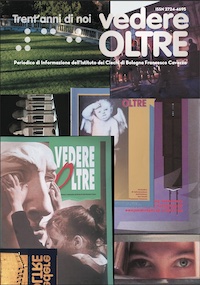When a reporter asked William Faulkner, the American author and winner of the 1949 Nobel Prize in Literature, what was the best way to train to be a writer, he answered, “Read, read, read. Read everything: trash, classics, good and bad. See how they do it.” Paola Peretti has followed his advice. Before becoming the fine writer and artist she is today, she was an avid reader as a child. As everyone knows, when reading grabs you it never lets go, and sooner or later the stories you have in you come out. That’s how it was for Paola, who has already had numerous successes, including "La brigata delle cinque sorelle" (Rizzoli Editore), "Filippo, Me and the Cherry Tree," and “The Distance Between Me and the Cherry Tree.” In this book, a publishing hit issued in more than twenty countries, the young Mafalda becomes progressively blind. This theme is deeply personal for Paola, who has lived with Stargardt disease (which leads to blindness) since she was a child.

What does literature mean to you?
It has always been an enchantment that let me see deep down, despite my limits. It was, and is, a school, just like Faulkner said: you learn to write, you nourish talent, only through intense, free, and constant reading. Literature, of any kind and intended for any age group, is also a window on the world, a window we throw open in our mind every time we open a book, a path that lets in beauty, irony, truth.
How can we stimulate teenagers to read?
They learn by imitation: maybe they need a strong example, input from someone they respect. At school it’s important to get the message across that reading isn’t boring, isn’t mandatory, and isn’t useless: just find the right story and it’s done, reading becomes indispensable. You need “good teachers,” but also authors who can supply special, real characters that readers can identify with. And these authors do exist.
Mafalda lives with a visual disease, but she doesn’t give up. Unfortunately, many young people with visual impairment suffer a form of discrimination. What can literature do to eliminate prejudice?
One simple example: authors like Charles Dickens teach self-irony, and this can instantaneously cancel other people’s ignorance.
Do we dream with closed eyes, and perhaps the imagination is just another way to see the world, beyond, one’s gaze?
We always dream with open eyes: the only way to have dreams is to live, know the world around us, and imagine what our role may be in the complex system of life. The imagination helps us write dreams that are visionary but never detached from reality. Life is the foundation of dreams, and fantasy lets us improve it.

Is there some new story you’re about to publish?
I recently finished a new novel for teenagers in which the young heroine has to learn to let go (the past, pain, fear). I hope it will be enjoyable and stimulating, and that “she” will become a good friend for readers, and they for her.





.png)